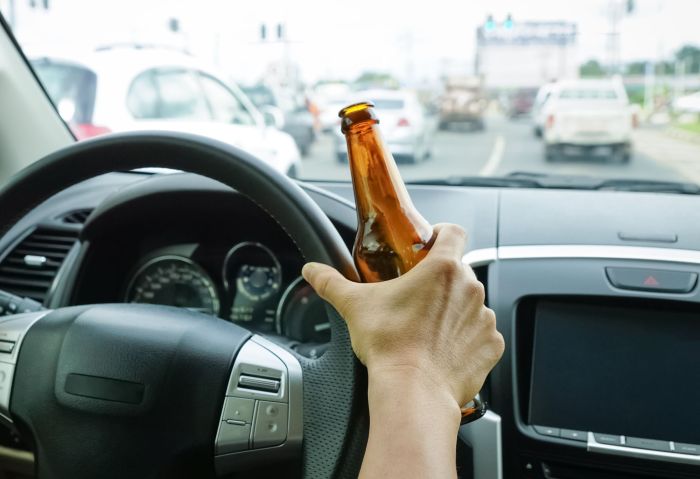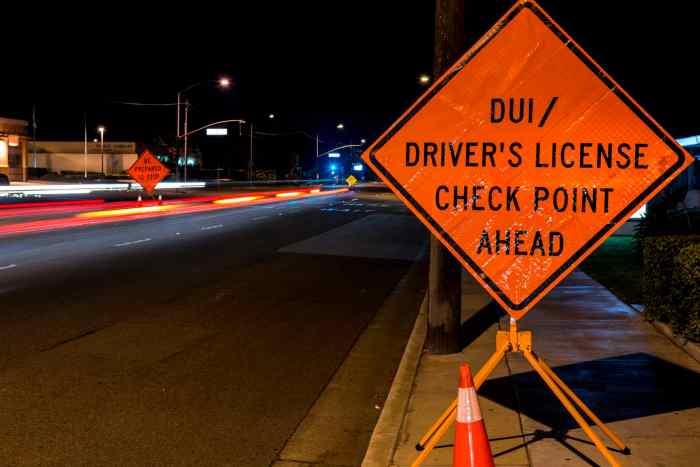Car insurance coverage for drivers with a DUI presents significant challenges. A DUI conviction drastically alters your insurance landscape, impacting premiums, coverage availability, and even the types of policies you can obtain. Understanding the complexities of this situation is crucial for securing adequate protection while navigating the increased costs and stricter requirements imposed by insurance companies.
This guide delves into the intricacies of car insurance after a DUI, exploring how the severity of the offense influences premiums, outlining available coverage options, and offering strategies for finding affordable insurance. We’ll examine the duration of increased premiums, the importance of SR-22 insurance, and provide practical advice for managing this challenging situation. Ultimately, our goal is to equip you with the knowledge needed to make informed decisions and secure appropriate coverage.
Impact of a DUI on Car Insurance Rates

A DUI conviction significantly impacts car insurance rates. Insurance companies view DUI offenders as high-risk drivers, leading to substantially increased premiums. Several factors influence the extent of this increase.
Factors Determining Insurance Rates After a DUI, Car insurance coverage for drivers with a DUI
Insurance companies assess various factors when calculating rates for drivers with a DUI. These include the driver’s blood alcohol content (BAC) at the time of the offense, whether an accident occurred, the presence of injuries or fatalities, and the driver’s prior driving record. The severity of the DUI directly correlates with the premium increase.
Severity of DUI and Insurance Premiums
A higher BAC generally results in a more significant premium increase. DUIs involving accidents, injuries, or fatalities will lead to even higher rates compared to a DUI with no accident. For instance, a DUI with a BAC of 0.15% and resulting in property damage will likely incur a higher premium increase than a DUI with a BAC of 0.08% and no accident.
Comparison of Insurance Rates
Drivers with a DUI conviction typically face significantly higher insurance rates than those with clean driving records. The increase can range from several hundred to several thousand dollars annually, depending on the factors mentioned above and the driver’s location.
Average Rate Increases for Different DUI Scenarios
| Scenario | Average Rate Increase Percentage | Factors Influencing Increase | State Variations |
|---|---|---|---|
| First-time DUI, no accident, BAC 0.08% | 80-150% | BAC level, clean driving record prior to incident | Varies significantly by state |
| First-time DUI, accident with property damage, BAC 0.10% | 150-250% | BAC level, accident involvement, property damage | Varies significantly by state; may trigger SR-22 requirements |
| Second DUI, accident with injuries, BAC 0.15% | 250-400% or more | Multiple DUI convictions, accident with injuries, high BAC | Varies significantly by state; SR-22 almost certainly required |
| DUI resulting in fatality | 400%+ or policy cancellation | Severity of offense, potential criminal charges | Varies significantly by state; policy cancellation is possible |
Types of Car Insurance Coverage Available After a DUI: Car Insurance Coverage For Drivers With A DUI
Even after a DUI, drivers still need various types of car insurance coverage. However, the availability and cost of these coverages will change significantly.
Description of Car Insurance Coverage Types
Standard car insurance policies generally include liability coverage (paying for damages to others), collision coverage (paying for damage to your vehicle in an accident), and comprehensive coverage (paying for damage to your vehicle from non-accident events like theft or vandalism). Uninsured/underinsured motorist coverage protects you if you’re hit by an uninsured driver.
Mandatory Coverage After a DUI
Mandatory coverage requirements vary by state. While liability coverage is typically mandatory in all states, the specific minimums and the availability of other coverages can differ greatly depending on the state and the specifics of the DUI. Some states may mandate higher liability limits or require SR-22 insurance after a DUI.
Limitations and Exclusions
Insurance companies may impose limitations or exclusions on coverage for drivers with DUIs. This might involve higher deductibles, restricted coverage amounts, or even the refusal to renew a policy. The specific limitations vary by insurer and state.
Key Features and Benefits of Coverage Types for DUI Drivers
- Liability Coverage: Essential to protect yourself financially if you cause an accident. Even with a DUI, liability coverage remains mandatory in most states, though limits may be higher.
- Collision Coverage: Covers damage to your car in an accident, regardless of fault. This might be more expensive or even unavailable for high-risk drivers.
- Comprehensive Coverage: Covers non-accident damage (theft, vandalism, etc.). This may also be more expensive or have limitations after a DUI.
- Uninsured/Underinsured Motorist Coverage: Protects you if hit by an uninsured driver. This coverage is crucial, regardless of your driving record.
Finding Affordable Car Insurance After a DUI

Securing affordable car insurance after a DUI requires a strategic approach. Several options and strategies can help mitigate the cost.
Strategies for Finding Affordable Insurance
Consider exploring high-risk insurance providers specializing in drivers with less-than-perfect records. Maintain a clean driving record going forward, and consider defensive driving courses to potentially reduce premiums. Shop around and compare quotes from multiple insurers.
Reputable Insurance Companies for High-Risk Drivers
Several insurance companies have a reputation for working with high-risk drivers, although their rates will still be higher than for those with clean records. Researching companies known for accepting DUI drivers is crucial. Note that specific companies specializing in high-risk drivers vary by location.
Benefits and Drawbacks of Comparison Websites
Comparison websites can streamline the process of obtaining multiple quotes. However, it’s essential to verify the accuracy of the information presented, as not all insurers are listed on every comparison site. Also, be wary of hidden fees or misleading information.
Tips for Negotiating Lower Premiums
- Maintain a clean driving record after the DUI.
- Complete a defensive driving course.
- Bundle insurance policies (home and auto).
- Increase your deductible.
- Pay your premiums on time.
- Negotiate directly with the insurer.
The Duration of Increased Insurance Premiums
The length of time increased insurance premiums persist after a DUI varies considerably. Several factors influence the duration of this increase.
Factors Influencing Duration of Increased Premiums
The severity of the DUI, the driver’s driving history before and after the incident, the state’s regulations, and the specific insurance company’s policies all play a role in determining how long premiums remain elevated. A more severe DUI will naturally result in a longer period of increased premiums.
Duration Across Companies and States
The duration of rate increases differs between insurance companies and states. Some insurers may keep rates elevated for three to five years, while others might extend this period to seven years or more. State regulations can also influence the length of the surcharge.
Timeline of Premium Increases and Decreases
A visual representation would show a sharp increase in premiums immediately following the DUI conviction. The premiums would remain elevated for a period determined by the factors mentioned above. Gradually, over several years, the premiums would begin to decrease, eventually approaching rates comparable to those of a driver with a clean record, assuming no further incidents.
SR-22 Insurance Requirements
In many states, a DUI conviction mandates SR-22 insurance. This is a certificate of insurance that demonstrates proof of financial responsibility.
Purpose and Requirements of SR-22 Insurance

SR-22 insurance proves to the state that the driver maintains the minimum required liability insurance coverage. It’s essentially a promise to the state that the driver will remain insured. Failure to maintain SR-22 coverage can result in license suspension or revocation.
Obtaining SR-22 Insurance
To obtain SR-22 insurance, you’ll typically need to contact an insurance provider that offers this type of certificate. The process involves providing information about your driving history and completing an application. Once approved, the insurer will file the SR-22 certificate with the state’s Department of Motor Vehicles (DMV).
Implications of Failing to Maintain SR-22 Coverage
Failure to maintain SR-22 coverage can result in significant penalties, including license suspension or revocation, fines, and difficulty obtaining future insurance coverage. It is crucial to ensure continuous SR-22 coverage throughout the mandated period.
Steps Involved in Obtaining SR-22 Insurance
- Contact an insurance provider that offers SR-22 coverage.
- Provide the necessary documentation, including your driver’s license and DUI information.
- Complete the SR-22 application.
- Pay the required premiums.
- Confirm that the insurer has filed the SR-22 certificate with your state’s DMV.
FAQ Explained
How long will my insurance rates stay high after a DUI?
The duration varies by state, insurer, and the specifics of your DUI. It can range from three to five years, or even longer in some cases.
Can I get car insurance if I have multiple DUIs?
It will be significantly more difficult and expensive, but it’s usually still possible. You’ll likely need to work with a specialist insurer for high-risk drivers.
What is an SR-22 form, and why do I need it?
An SR-22 is a certificate of insurance filed with your state’s Department of Motor Vehicles, proving you maintain the minimum required liability coverage. It’s often mandated after a DUI.
Will my car insurance premiums ever return to normal after a DUI?
Yes, eventually. Once the DUI is no longer considered a factor in your driving history (typically after a certain number of years with a clean record), your rates should decrease.